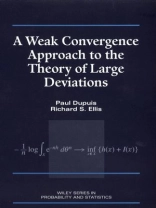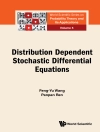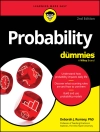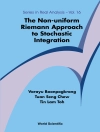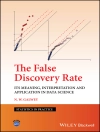Applies the well-developed tools of the theory of weak convergenceof probability measures to large deviation analysis–a consistentnew approach
The theory of large deviations, one of the most dynamic topics inprobability today, studies rare events in stochastic systems. Thenonlinear nature of the theory contributes both to its richness anddifficulty. This innovative text demonstrates how to employ thewell-established linear techniques of weak convergence theory toprove large deviation results. Beginning with a step-by-stepdevelopment of the approach, the book skillfully guides readersthrough models of increasing complexity covering a wide variety ofrandom variable-level and process-level problems. Representationformulas for large deviation-type expectations are a key tool andare developed systematically for discrete-time problems.
Accessible to anyone who has a knowledge of measure theory andmeasure-theoretic probability, A Weak Convergence Approach to the Theory of Large Deviations is important reading for both studentsand researchers.
Jadual kandungan
Formulation of Large Deviation Theory in Terms of the Laplace Principle.
First Example: Sanov’s Theorem.
Second Example: Mogulskii’s Theorem.
Representation Formulas for Other Stochastic Processes.
Compactness and Limit Properties for the Random Walk Model.
Laplace Principle for the Random Walk Model with Continuous Statistics.
Laplace Principle for the Random Walk Model with Discontinuous Statistics.
Laplace Principle for the Empirical Measures of a Markov Chain.
Extensions of the Laplace Principle for the Empirical Measures of a Markov Chain.
Laplace Principle for Continuous-Time Markov Processes with Continuous Statistics.
Appendices.
Bibliography.
Indexes.
Mengenai Pengarang
PAUL DUPUIS is a professor in the Division of Applied Mathematics at Brown University in Providence, Rhode Island.
RICHARD S. ELLIS is a professor in the Department of Mathematics and Statistics at the University of Massachusetts at Amherst.
